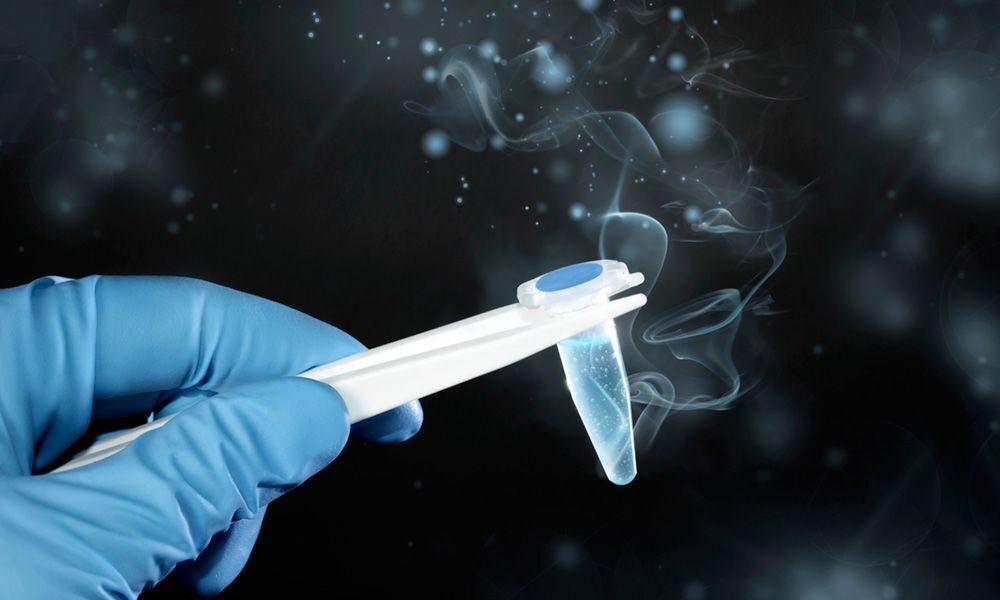When facing chemotherapy or other treatments that could compromise fertility, sperm freezing is a typical preventative step. It’s a straightforward procedure, but familiarizing yourself with the concept before visiting the clinic will help you make an informed decision. This is the information you require. The term sperm freezing refers to the practice of keeping viable sperm in a bank for later use. This is done so that people who have lost their fertility due to, for example, hazardous occupations or chemotherapy can still have children. Ejaculated sperm can be discovered in semen, a white fluid that drains from the penis. Up to 500 million sperm can be released in a single ejaculation. Millions of sperm will ascend through the cervix if semen reaches the vagina. Sperm have the potential to fertilize an egg if they come into contact with one. Sperm, however, can’t survive for long outside the reproductive organs, therefore it must be frozen at extremely low temperatures before being used. Until a client agrees to undergo fertilization, sperm banks typically keep the sample at -196 degrees Celsius. When the moment is right to start a family, the sperm is thawed and then implanted into the uterus of a female. Both intrauterine insemination and in vitro fertilization can accomplish this. Those who are unable to make their own semen may still be able to have a biological kid with this method, albeit conception is not assured. There are a number of situations and people for whom the ability to freeze sperm is crucial. The importance of sperm cryopreservation is highlighted by the following points:
Methods of Artificial Procreation
Vital to the success of IVF and ICSI, two assisted reproductive procedures, is the practice of freezing sperm. Sperm can be frozen and stored until it is time for fertilization, giving couples the chance to have a baby whenever they are ready.

Protecting Your Fertility
The fertility of people who must undergo medical procedures like chemotherapy or radiation can be protected through sperm freezing. Sperm production can be negatively impacted by these therapies, thus freezing them beforehand protects the chance of a future pregnancy.
Obstacles to Conception
Low sperm count, genetic abnormalities, and other reproductive difficulties might make it difficult for some people to conceive a child. They can increase their chances of getting pregnant when they’re ready by preserving healthy sperm in advance.
Preconception Preparation
When delaying childbearing for personal or professional reasons, sperm freezing can provide stability and peace of mind. It allows men to save their sperm at their peak of fertility, giving them the chance to start a family at a later date.
Construction of Same-Sex Families
For same-sex male partners, sperm freezing is an important step in starting a family. With the help of IVF or a surrogate, a couple can finally start a family by using frozen sperm from one of them.
In conclusion, sperm freezing is a great way to protect your fertility and organize your family’s future. The process of sperm freezing allows people to overcome potential reproductive issues brought on by medical treatments or hereditary abnormalities. Finally, sperm freezing is a chance to protect the dream of becoming a father and gives hope in the face of fertility-related doubts.









